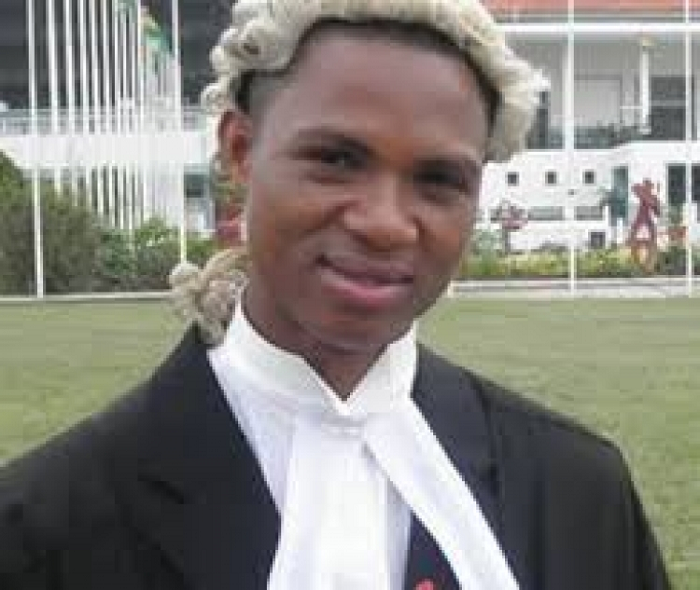
Right of lawyer Sosu’s clients about to be abused
Assuming without admitting that the purported conduct of Lawyer Sosu was true, let us ask ourselves whether the sentence meted out to him was right in law.
The LEGAL PROFESSION ACT, 1960 ACT 32,
Section 16(1) reads:A lawyer who is found guilty of grave misconduct in a professional respect, including a conduct which, in pursuance of the Rules is treated as grave misconduct in a professional respect, is liable
(a) to have the name of that lawyer struck off the Roll of Lawyers, or
(b) to be prohibited from practising as a lawyer for a period specified in the order of suspension.
GLC obviously came under (b) to sanction Lawyer Sosu.
But this act, as it were, is subservient to the constitution (I believe the Ghana Legal Council (GLC) is very much aware of this) and Article 2(1)(a) allows one to bring an action for the interpretation of Article 14(4), vis-a-vis Section 16(1) of Act 32.
My problem is with the last paragraph of page 2 of the statement issued by the GLC. I get the express understanding that he (Lawyer Sosu) cannot go to court from ( June 2, 2017 for the next three years) to represent any of his existing clients he is already representing in court.
The implication is, either:
1. the clients wait till after three years to resume their case
OR
2. he will have to offload them to another lawyer.
What then happens to Article 14(4) of the 1992 constitution, which says "A person who is arrested, restricted or detained shall be informed immediately, in a language that he understands, of the reasons for his arrest, restriction or detention and of his right to a lawyer of his choice." (I am sure he is representing people who fall in this category stated in Article 14(4)). And I am of the firm conviction that the right to a lawyer of one's choice is not only restricted to people arrested and restrained, but opened to all persons who want redress in a court or any tribunal or a quasi-judiciary body. This, for me, amounts to a slap in the face of the constitution and amounts to the abuse of their fundamental human rights.
I, therefore, entreat persons whose fundamental human right is about to be breached under Article 14(4) of the 1992 constitution to bring an action against the GLC under Article 2(1)(a)(b):
A person who alleges that - (a) an enactment or anything contained in or done under the authority of that or any other enactment; or (b) any act or omission of any person; is inconsistent with, or is in contravention of a provision of this Constitution, may bring an action in the Supreme Court for a declaration to that effect.
The GLC, who is expected to know better, has violated/is in the process of violating the fundamental human rights of his clients.
What I mean is that the GLC did not avail itself to this violation under Article 14(4). Because, if they did, they would have considered an alternative punitive action for him which won't affect his existing clients. In the concluding part of this article, I will outline two alternative punishments which should have been considered by the GLC.
A school of thought may have the opinion that he has other lawyers in his chambers and so any of the lawyers can represent the clients.
But hang on a minute.
What if he is practising alone? A lawyer is not barred from practicing alone.
A lawyer of one’s choice is to be understood as per the letter and not to be understood to mean A CHAMBER. The judiciary, of which the GLC is a part, should be seen to be upholding or protecting the human rights of Ghanaians and not to be violating it by their recent pronouncement.
Alternative punitive actions
1. The three-year ban should rather bar him from admitting new cases to his chambers and not bar him from representing his existing clients in court. This will then enable him to represent his existing clients in court and thus maintain the sanctity of Article 14(4).
Then prospective new clients will now have the option to choose another lawyer of their choice to represent them in court or to wait for the three years to elapse (if their case won't be statue barred with time).
2. A fine.
I have always held the view that this country has become lawless but quasi judiciary bodies should be seen to be keeping the tenets of Rule of law. This cliché is not reserved for the traditional courts only.
I await the outcome of the appeal or better still, a judicial review. He should apply for a certiorari to quash the decision of the disciplinary committee of the GLC.
The writer is with the Central University’s Law Faculty
